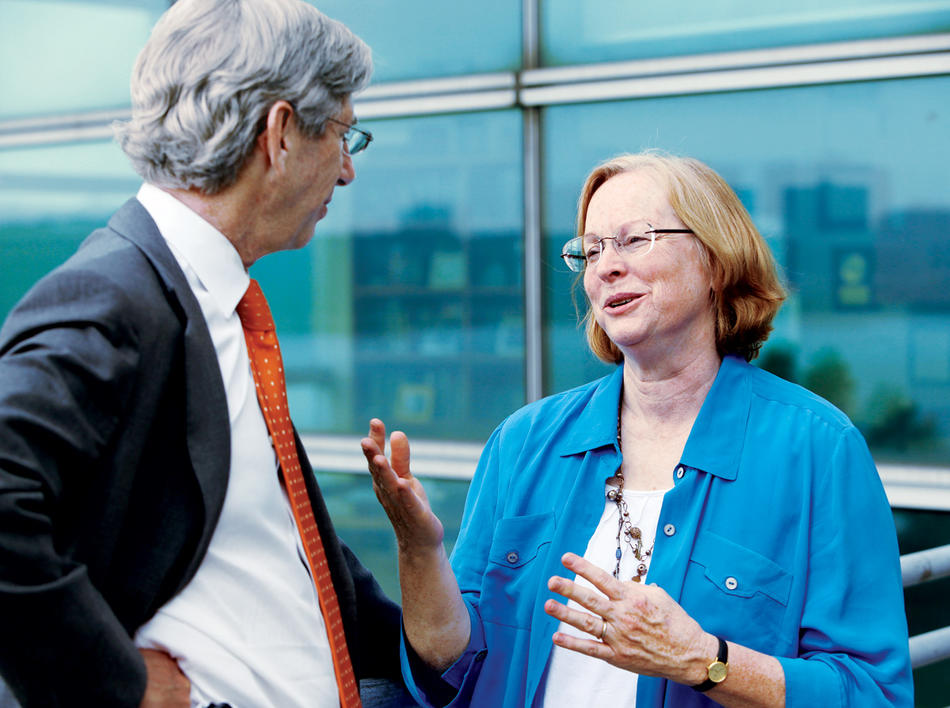A new autism treatment and research facility to serve the tristate area will open in White Plains, New York, in late 2012. The Institute for Brain Development will be located on the Westchester campus of New York–Presbyterian Hospital and will be staffed by faculty physicians from both Columbia and Cornell.
“The creation of this institute is necessitated by the relatively recent emergence of autism as a major public-health issue,” says Jeffrey Lieberman, who chairs Columbia’s psychiatry department and helped plan the institute. “Put simply, there’s an urgent need now for evaluating and treating autism.”
The Institute for Brain Development will be directed by Catherine Lord, a clinical psychologist and a leading expert on autism. Lord most recently oversaw a clinical facility for autism spectrum disorders at the University of Michigan. She is best known for developing diagnostic standards for autism and new ways of teaching social and language skills to autistic children.
The New York Center for Autism, a parent-advocacy organization led by business executive Laura Slatkin and attorney Ilene Lainer, is collaborating with New York-Presbyterian to develop the center and recruit key faculty members. The organization has also raised funds to cover most of the institute’s initial underwriting costs.
The Institute for Brain Development will be the largest autism facility in the New York City area, providing diagnosis and treatment for hundreds of people annually. “My goal is nothing short of transforming the way autism is treated in the New York metro area and beyond,” says Lord, who has been appointed to the faculties of both Columbia and Cornell. “By integrating our services with other community organizations and resources, the institute will offer a wide variety of treatment options for patients of all ages and needs. We intend to provide the very best environment for treating autism spectrum disorders.”
Lord says the institute will collaborate with smaller autism clinical centers, such as the Developmental Neuropsychiatry Program at Columbia University Medical Center (CUMC) in Upper Manhattan. “The Institute for Brain Development will be the centralized care facility in the region, with the largest staff of autism specialists,” says Lord. “There’s a need to centralize some aspects of assessment and service delivery because autism is a very complex disorder that often gets misdiagnosed. But we’ll make referrals to other centers that specialize in certain types of treatments or are more convenient for families to visit.”
The institute will also be a major research center. Lord, who oversees several federally funded autism studies, says the institute will be fully staffed by physicians with faculty appointments at either Columbia or Cornell. Existing faculty at these and other local institutions, she says, will be able to recruit study subjects from among the families served by the institute. “We’re even going to hold seminars to teach other researchers about the data we collect,” Lord says, “and to show them how they could use our data in their own work.”
According to Lieberman, CUMC psychiatric residents and fellows will be able to rotate through the Institute for Brain Development; Columbia graduate students in fields ranging from psychology to speech therapy to neurology to early childhood education will work on research projects there.
“Having a treatment and research center staffed by faculty from both Columbia and Cornell is going to open up new possibilities for collaboration,” says Lieberman. “That’s important, because understanding autism requires the involvement of scientists coming at the problem from many different angles.”



